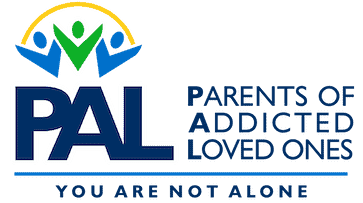
We are parents of a 28-year-old son who struggles with alcohol abuse and mental illness that he was diagnosed with at a young age. Over the years we have participated in various support groups, attended numerous educational programs, had family, individual and marriage counseling, all to help us deal more effectively with our son.
As a child he was fun, funny, loved the outdoors – especially fishing – and animals of all kinds. At the age of ten things changed as his mental illness issues started to surface. He had a math disability and Attention Deficit Disorder in addition to other more serious issues. As he grew we noticed that he became more and more unhappy and sometime in his late teens he turned to drugs. We are not certain how long this lasted but eventually his drug of choice became alcohol. He expressed that he uses it to numb his pain which is emotional pain. He doesn’t work and has very unstable relationships. He did move out about ten years ago and continues to live on his own.
A friend of mine from the National Alliance of Mental Illness (NAMI) had talked to me several times about how helpful PAL had been for her. We just felt it was never the right time, we just wanted him to get better and kept looking at the mental illness aspect of it and didn’t really know what to do. Finally, in depths of despair and stress, we found ourselves sitting in a PAL meeting – it was the right time!!
From the first meeting, we knew we were where we needed to be. We began learning more about addiction in general and suggestions were offered of alternatives to address our immediate issues. When we asked, “what do we say when he says…” it turns out others had heard that before and had some great answers. One new word that we learned was “bummer” – not in a mean way – just truly stating that’s unfortunate but then not jumping in and taking it on as our problem! We learned not to ask for details or information unless we were going to do something with the information. We started using our new words right away rather than going directly into “fix-it” mode like parents often do.
Through the weeks and months, we have learned the difference between enabling (care-taking) and having an adult-to-adult relationship (care-giving). It hasn’t been easy making slow, subtle changes. We have talked to our son about the fact we are changing, and we are trying to treat him more like an adult. Interestingly he said he has noticed. We are making different choices. We are not rescuing, not immediately helping and instead we are watching him figure out how to deal with the result of some of his choices. It is difficult seeing your child unhappy even at the age of 28, but we believe we had slowed his emotional growth through the years by trying to fix him and all his circumstances. We learned that we were teaching him that he “needed” us for all decisions.
We were out of town over last summer and couldn’t attend our local PAL group for a while. When we returned to in the fall, my husband (who is a quiet and very private person) stood up in the beginning of our PAL group and announced “PAL has changed my life! I can’t thank you enough!!” It was so outside of his character, but he speaks boldly of the impact of PAL on our lives, and on our relationship with our son.
We are a work in progress. We still screw up at times. We have a long way to go and we know we have the power of our PAL group, both the leaders and the participants, to support us. We have more of a sense of freedom. We don’t feel so responsible for it all. We are calmer, more tolerant, and we listen better. We have learned to set new limits that we can keep. We are happier. Our son continues to resist the idea of needing treatment and even tried to stop on his own but has been hospitalized for alcohol poisoning. We know he continues to have his mental health issues, but there is not much that can be done if he is still using alcohol to mask his problems.
The good news is we are not in regular conflict with him, we don’t end up yelling and we truly are trying to treat him like an adult and accept him for who he is. We will continue to hold out hope that he will change and get the help he needs but we have been able to move on with our lives.
PAL is a safe, nonjudgmental, welcoming environment and it really has impacted our lives in a positive way.
PAL Mom
